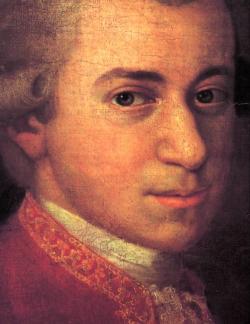A new, in-depth study of eight super-talented children, published in the journal Intelligence, suggests that autism runs in the family for prodigies. Four out of eight of the children—musical virtuosos, painting geniuses, and chess stars—reported relatives with a diagnosis. (To put that number in perspective: In the United States, one out of 88 kids has been diagnosed with autism).
Prodigies reach stunning levels of achievement in non-verbal, rule-bound domains at a young age. They’re different from savants, or people who also demonstrate extraordinary gifts but have social or mental impairments. (Darold A. Treffert poetically describes the savant mind as an “island of genius” lapped by waves of disability). And yet the line between savant and prodigy seems slightly blurrier when viewed through the lens of this investigation, led by Ohio State Mansfield professor Joanne Ruthsatz and concert violinist Jourdan Urbach: Not only did the developmental disorder appear more frequently in the prodigies’ family histories, but the prodigies themselves showed higher levels of autistic traits than did children in a control group. In particular, the prodigies scored off the charts on “attention to detail,” a quality closely associated with the autism spectrum.
The prodigies were also given the most recent version of the Stanford-Binet IQ test. Not all of them cracked the genius threshold—some of the overall scores were pretty average—but the subtest scores were distinctive. Every prodigy earned astronomically high (above the 99th percentile) results in the “working memory” category. This kind of memory describes a knack for juggling multiple ideas and weaving new knowledge into the totality of remembered fact. It allows you to retrieve files from your mental archives even as you process incoming data, allowing potentially fleeting details to take root in your existing knowledge. Put simply, working memory is how you build on expertise you’ve already got.
This is significant because prodigies are known for developing an astonishingly large mental database related to a particular rule-bound domain—and for doing it in a breathtakingly short period of time. When you add an elevated “attention to detail” to a turbo-charged working memory, the almost magical powers of prodigies start to make sense. Which means that prodigies may have autism (or at least autism-affiliated traits) to thank for some of their remarkable feats.
